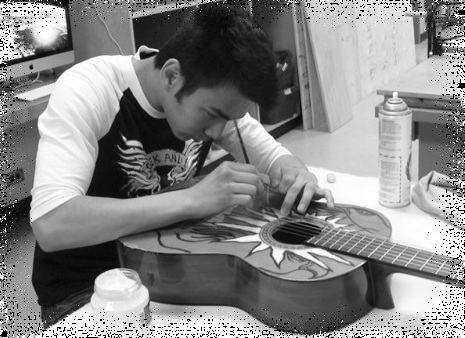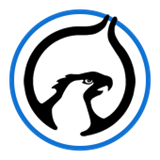Additional Programs
January 24, 2025

FINE ARTS PROGRAM GRADE 9 - 12 (1 CREDIT EACH)
The goal of the Fine Arts program is for students to develop the ability to visually communicate their ideas, feelings and experiences through skill development in the use of a variety of art mediums. Students are encouraged to explore, problem solve, challenge themselves and share their acquired skills and enthusiasm for participating in a creative process. The Fine Arts program emphasizes awareness of the natural and man-made environment, the enjoyment of 'hands-on' participation and the healing processes of reflection and thought which foster 'building processes'. The program also endeavors to accommodate and support all skill levels and encourages students to become familiar with the art of different cultures and the works of professional artists, past and present.
Music
Guitar (1 Credit)
In this beginner guitar course, students will learn basic chords and typical chord progressions. Students will receive preliminary instruction on scales and note reading. Students will be exposed to a variety of rhythm and finger picking techniques and will have a chance to practice multi-part arrangements of songs and perform as part of a group.
Piano (1 Credit)
This course is designed to stimulate student growth in piano through the use of performance, basic theory, listening to piano performance and history of piano performance. Students will be learning pieces based on their previous level of experience. All students will complete work in music theory and history to teach them the knowledge necessary to form a lifelong enjoyment of music.
PRE-INDUSTRY TRAINING
The Pre-Industry Training course is a 5 or 10 month, full-time, industry-needs based program. The program consists of: Vocational instruction, Integrated computer skills, resume writing, and employability skills training, and work readiness skills such as interview techniques, application form completion, employer expectations, communication skills, attitude, and time management. The training also includes supervised on-the-job training. Students are placed with an employer who is looking for an employee and are regularly monitored while on the job to ensure their success.
Bicycle Repair (1 Credit)
The Bicycle Repair class provides students with opportunity to learn the basic mechanical and problem solving skills to repair one of the world's most efficient machines. This program offers students to learn the basics of bicycle maintenance, repair and troubleshooting the different systems on the bike. Students will learn to identify the general and bike specific tools needed to make repairs and adjustments for optimal performance of their bicycle. Learning these skills offers them the ability to maintain their own bicycle for their own use and enjoyment as well as potential employment opportunities in the community.
Truth and Reconciliation (1 Credit)
Truth and Reconciliation will provide students with the opportunity to explore and develop their understanding of the relationship between Indigenous and non-Indigenous Canadians. The entire course is framed around the question, "What does reconciliation mean to you?" Reconciliation is an open-ended concept with many definitions and each student will use their learning to shape their understanding of reconciliation. As the course progresses, this question will revisited a number of times, ultimately culminating in a final project that asks students to represent reconciliation using writing, visual art, or any other medium of their choice. For many students, this course covers issues that are very real and present in their own lives.
This course's timeline will stretch from the time before European contact to today's Canada. Students will have the opportunity to explore the impact of the past on the present, focusing on systemic oppression but also celebrating the progress. The main goal of the course is to leave students feeling empowered as individuals that will become part of the process towards healing and reconciliation. The first step of that process is for students to gain a thorough understanding of the events, values and belief systems that created the fracture that still exists today. This course will explore several topics such as Colonialism, the Indian Act, Treaties, Canadian Residential Schools, the Sixties Scoop, Missing and Murdered Indigenous Women and Systemic Racism.
The purpose of this course is not to vilify non-Indigenous Canadians but instead to create an open and honest dialogue so that progress can be made. There is a tremendous amount of misinformation regarding Indigenous Peoples of Canada as well as their relationship with non-Indigenous Canadians and the Canadian Government. Having the opportunity to explore these ideas allows students to be a part of the conversation and the movement towards reconciliation.


